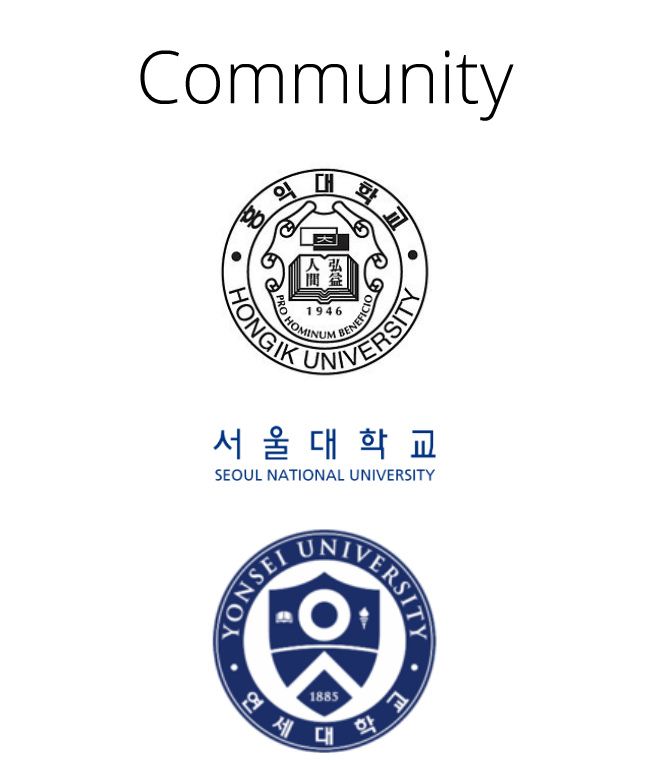Community and Multimodality: Laying out a Disciplinary Flow
I am making my way through the first few rounds of rewrites on my thesis and all is going well. As I wrote before, there has been significant shift in my focus and it now rests squarely in the Humanities practices of Korean higher education, specifically Seoul National University, Yonsei University, and Hongik University. These universities were chosen for a variety of reasons, including:
- academic reputation within Korea
- academic reputation of specific Humanities course offerings
- active graduate student base
- logistical access
This might shift as the thesis progresses, but it does look like Korea will be my focus community, Humanities will be focus set of disciplines, and mobile technology will be my mode of technological intervention. I will be funneling this activity through a variety of theoretical frameworks, including
- socio-cultural theory (Vygotsky)
- communities of practice and situated learning (Lave & Wenger)
- activity theory (Engestrom)
- actor-network theory (ANT)
- multimodality (Kress)
Multimodality, in particular, is highly applicable to this space so I will be referring to it early and often. As luck would have it, the Institute of Education is one of the leading centers in the world for this type of multimodal application; Gunther Kress works here as well. So, win-win all around.
I created a brief and clumsy Prezi (below) for how I see the process of knowledge construction taking place through the lens of multimodality. I would have rather presented these as a non-linear process as they are not exclusively sequential like this (social mediation, for example, occurs at all stages of this process), but it should give an idea as to what I think are some of the discrete elements involved in multimodal constructions in the Humanities and how these elements and the actors involved might flow through activity systems. How they are practiced specifically in Korea will offer an interesting wrinkle to both mobile learning and multimodality (I believe) as these universities are rooted in both Western and Eastern traditions (in the way they pursue, construct, and ultimately disseminate knowledge). I don’t want to labor over Korean higher education as being representative of anything other than Korea, but it will be important to establish the particular context of its disciplinary structure.
[gigya id=”preziEmbed_mqegx9ukto0j” name=”preziEmbed_mqegx9ukto0j” src=”http://prezi.com/bin/preziloader.swf” type=”application/x-shockwave-flash” allowfullscreen=”true” allowFullScreenInteractive=”true” allowscriptaccess=”always” width=”550″ height=”400″ bgcolor=”#ffffff” flashvars=”prezi_id=mqegx9ukto0j&lock_to_path=0&color=ffffff&autoplay=no&autohide_ctrls=0″]
Labor of Love: Thinking and Writing
On a side note, writing this thesis has proven to be an invigorating experience. I am fully aware that this feeling will wax and wane, be overtaken by doubt, despair, etc. and hopefully swing full circle towards invigoration. I am sure by the end of this process, I will be ready to finish, to be done with this research topic, but this shouldn’t discount what an artistic/creative/intellectually satisfying process it is to engage with a chosen community around a chosen framework and quite simply just think it through to completion. It is an honor to be able to participate in this community of the mind, to be able to adhere to its mandates and partake in its almost spiritual solemnity. As I said, I know these feelings will wax and wane and I will doubt and despair at various stages of this journey, but that is the point, isn’t it? Doing something that is utterly novel (not my goal, necessarily, just so specialized that I can’t avoid the novelty) is an act of discipline and courage. It is an understanding that I have little to base thee ideas against, or structures to bounce this off of if only for feedback. All we have is theory and community; that is enough. What an honor to be able to participate in something like this (I say, remembering all the banal jobs I have had over the years).
Related to that is the fragile and beautiful act of writing. Writing is my favorite medium; it is my version of thinking aloud. It is a flow of incessant construction, an act of creating structure where none existed. It is one of the most satisfying acts of art that I have ever participated in. When I sat through the weekend typing away, not noticing the sun set, not caring that there was this iconic city laid out before me (London), I was at peace. My mind and my actions (writing) were one. I wasn’t distracted, nor was my attention split elsewhere. I was whole. If my wife were here, that would be the complete picture, but knowing I will see her soon is enough. This past weekend was a communion of my thoughts, my actions, and my writing. What a joy it is to be given the excuse (through participating in a formal doctoral program) to just sit and think and write.


